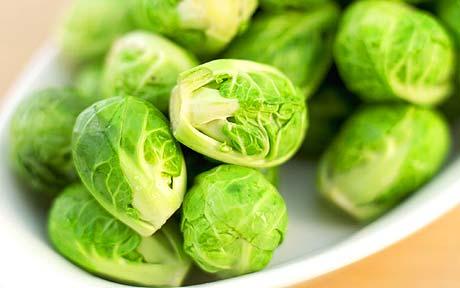Health Benefits of Vitamin K

Do you know of anyone who suffers from digestive problems like Celiac or Crohn’s Disease? Or maybe Osteoporosis, blood clot problems, menstrual pain or excessive bruising? With all of the hype in the past few years of in-taking more Vitamin D & Calcium, be on the lookout for more recommendations and research with respect to consuming more vitamin K.
How can Vitamin K help?
Vitamin K is a anti-inflammatory, fat-soluble vitamin which has several health benefits, which includes aiding in absorption of calcium, blood clotting, menstrual pain relief, digestive health, arterial and bone strength as well as integrity, & brain function. It could help digestive diseases like ulcerative colitis by improving blood flow and oxygen levels to cells & tissues . It aids in nose bleeds and heavy menstrual cycles by helping blood to clot. It helps to avoid fatty deposits as well as calcification from forming on the walls of blood vessels, that helps minimize incidences of stroke and heart attack . Vitamin K can also assists to minimize the chances of Osteoporosis, by minimizing osteoclastic activity, that breaks down bone. Improving calcium intake is ideal for bone strength, however a problem for arteries can become serious. In-taking Vitamin K secures the unity of blood vessel walls from calcifying when extra calcium is produced in the body, & may also help with varicose veins.
What differentiates Vitamin K2 from Vitamin K1?
Of the 2 vitamin derivatives, vitamin K1 is easily available in the U.S over the counter, while vitamin K2 can be made available only through a prescription of a doctor. Vitamin K1 is largely used in infants in most of the hospitals in order to prevent bleeding, it helps to prevent veins and arteries from calcifying, and also strengthens your bones. Vitamin K2 is created by bacteria inside your digestive tract, & is frequently excreted through your body with very small absorption. The human body is equipped with the innate ability to transform vitamin K1 into K2.
Where is vitamin K found?
Vitamin K is readily available in most of the foods, especially cruciferous and green-leafy vegetables such as kale, Swiss chard, turnip, spinach, Brussels sprout, romaine lettuce, mustard & collard greens and cabbage.
Vitamin K2 can also be found in fermented food items, and a famous Japanese breakfast food made with the help of fermented soybeans.
How much vitamin K should you take?
There are various opinions on the right dosage should you select to have Vitamin K supplements. It’s necessary to take this vitamin along-with a fat-soluble food & together with vitamin D for the best possible effects. It’s suggested to take anywhere between 50-180 mcg of vitamin K1 regularly for adult persons, & sometimes even more if a person is not consuming cruciferous and dark green leafy vegetables on a daily basis. Generally, The Institute of Medicine suggests that men require a minimum of 120 mcg of vitamin K per day while women require a minimum of 90 mcg of vitamin K per day. If you’re consuming prescribed blood thinner and anti-coagulant like Coumadin or Warfarin, or you have any other health issues, consult with your physician first before you consider Vitamin K supplements.
Vitamin K has numerous health benefits, & it is crucial for health is under publicized, versus huge names such as Calcium and Vitamin D . It’s is available readily and also very easy to consume. It should be a component of any nutritional diet.
Photo Credit: GETTY
Feel free to follow Skinny Twinkie: Google+, Facebook, Twitter, Pinterest, Instagram, YouTube
